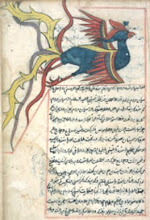Trinidad Nights
Whether the moon is full or crescent,
whether the moon is absent,
whether the night breathes silver and shadow,
whether the night breathes darkness and stars —
dancers always come.
The musicians’ jump
to congas and bongos,
to percussion and guitars,
to saxophone and trumpet,
fill the stone courtyard with sound,
fill the night with sound,
fill the dancers with movement.
The sound is loud and fast,
the sound is rhythmic,
the sound is salsa.
Above,
on the stone steps to the Casa de la Musica,
the drinkers drink Cerveza, Ron, Mojito,
the drinkers talk,
the drinkers’ eyes slip down
to the bodies of the dancers,
slip down and up,
down and up.
On the stone courtyard
the dancers step forward, step back,
link arms, unlink,
step around each other,
the man always directing the woman,
the woman circling the man,
dancing on and on,
changing partners,
feeling sinew and muscle,
feeling the drip of sweat,
feeling the slip of shine and sheen,
feeling the brush of skin on skin,
of hands touching backs.
The dance is hot and close,
the dance is hypnotic,
but the dancers do not dance for love or lust,
not for youth or memory,
not for themselves or each other,
not for the drinkers’ eyes.
The dancers dance
for the perfection,
for the intricacy,
for the synchronicity
of movement,
the dancers dance
for salsa,
always for salsa,
only for salsa.
- © David Adès 2021
David Adès is the author of Mapping the World, the chapbook Only the Questions Are Eternal and most recently Afloat in Light (https://uwap.uwa.edu.au/products/afloat-in-light). In association with Mascara Literary Review, David is a recipient of the 2020 Don Bank Writing Residence (extended into 2021 due to Covid) together with Michelle Cahill, Debbie Lim and Michelle Hamadache.




No comments:
Post a Comment